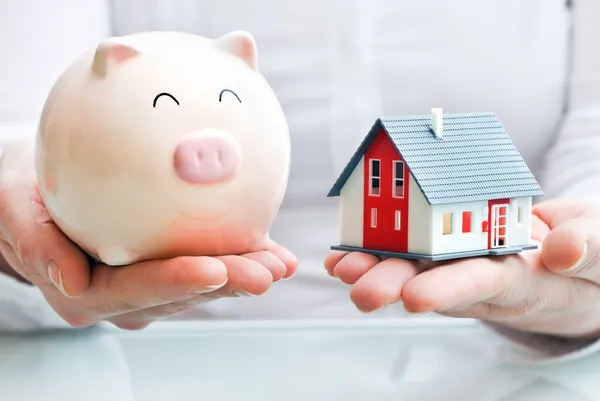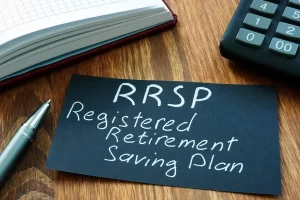Buying a home can be an exciting and satisfying experience, but it’s important to understand the financial implications of such a major purchase. Many people mistakenly believe that buying a home is an investment, like investing in stocks or bonds. But is this really true? In this blog post, we’ll debunk the myths and misconceptions around whether or not your home is really an investment. We’ll look at the financial and lifestyle benefits of buying a home and help you decide if it’s the right decision for you.
Defining “Investment”
When we hear the word “investment,” we often think of stocks, bonds, or even real estate. But what exactly does it mean to consider your home as an investment? To define it simply, an investment is something you put money or resources into with the expectation of receiving a return or benefit in the future.
With that definition in mind, it’s easy to see why many people view homeownership as an investment. After all, you’re putting a significant amount of money into purchasing a property, and there’s often an expectation that the value of that property will increase over time. Additionally, homeownership provides the benefit of building equity – the difference between the value of your home and the amount you owe on your mortgage.
However, it’s important to understand that homeownership is not a traditional investment in the same sense as stocks or bonds. Unlike those assets, the return on investment for a home is not guaranteed. The value of your property can fluctuate depending on a variety of factors, such as the real estate market, the condition of your home, and the overall economy. Additionally, while building equity is a benefit of homeownership, it’s not the same as generating income or receiving a financial return.
In essence, your home can be seen as a form of investment, but it’s crucial to approach it with realistic expectations. It’s more accurate to view homeownership as a long-term financial commitment and a place to create a stable living environment for you and your family. By understanding this distinction, you’ll be better equipped to make informed decisions about whether buying a home aligns with your financial goals and aspirations.
The Traditional Argument: Homeownership as an Investment
For many years, the traditional argument has been that homeownership is a wise investment. The idea is that by purchasing a home, you’re not only providing yourself with a place to live, but you’re also building equity and increasing your net worth over time. This argument has been reinforced by the notion that real estate values generally increase, so owning a home is seen as a way to secure your financial future.
Proponents of homeownership as an investment point to historical data that shows real estate prices have, on average, risen over the long term. They argue that by buying a home, you’re essentially betting on the continued growth of the housing market. In this view, your home becomes a tangible asset that will appreciate in value and can be sold for a profit in the future.
Another aspect of the traditional argument is the notion of “forced savings.” By paying a mortgage each month, you’re building equity and gradually paying off the principal balance. This is often seen as a form of forced savings, as your mortgage payments are effectively contributing to your overall net worth. This is particularly appealing to those who struggle with saving money and want a structured way to build wealth.
Additionally, owning a home can provide stability and security, especially in terms of housing costs. With a fixed-rate mortgage, your monthly payments remain the same over the life of the loan, while rents can increase over time. This can provide a sense of financial security and peace of mind, knowing that your housing costs are predictable.
While the traditional argument has its merits, it’s important to consider the limitations and risks involved in viewing homeownership solely as an investment. As mentioned earlier, the housing market is not without its fluctuations. Just because real estate prices have historically risen doesn’t guarantee that they will continue to do so in the future. Economic factors, market conditions, and other external forces can all impact property values.
Furthermore, the costs of homeownership extend beyond the purchase price. Maintenance, repairs, property taxes, and insurance all add to the overall expense of owning a home. These ongoing costs can eat into any potential returns and must be taken into account when evaluating the investment value of homeownership.
Factors to Consider When Evaluating Your Home as an Investment
Buying a home is a big decision, and it’s important to consider all the factors involved when evaluating whether it’s a good investment. Here are some key factors to consider:
1. Location: One of the most important factors to consider when evaluating your home as an investment is its location. Is it in a desirable neighborhood? Is it close to amenities such as schools, shopping centers, and parks? The location of your home can greatly impact its value and potential for appreciation.
2. Market Conditions: The state of the real estate market is another crucial factor to consider. Are home prices rising or falling? Is there a high demand for homes in the area? Understanding the current market conditions can help you gauge the potential for appreciation in your home’s value.
3. Maintenance and Upkeep: Owning a home comes with ongoing costs for maintenance and repairs. It’s important to consider these expenses when evaluating the investment value of homeownership. Regular upkeep and improvements can help maintain and potentially increase your home’s value.
4. Rental Potential: Another factor to consider is the potential for rental income. If you’re considering buying a home as an investment property, it’s important to evaluate the rental market in the area. Will you be able to attract reliable tenants and generate positive cash flow from renting out the property?
5. Personal Financial Goals: Lastly, it’s crucial to align your decision with your personal financial goals. Are you looking to build equity over the long term? Are you planning to sell the property in a few years? Consider how owning a home fits into your overall financial strategy.
By considering these factors, you can make a more informed decision about whether buying a home is a good investment for you. Remember, homeownership is not solely about financial returns but also about creating a stable living environment and fulfilling your lifestyle goals.
Misconceptions About Homeownership as an Investment
There are several common misconceptions about homeownership as an investment that can lead people to make misguided decisions. One of the most prevalent misconceptions is the idea that real estate prices always go up. While it is true that historically, real estate values have generally increased over time, this is not always the case. The housing market is subject to fluctuations and external factors that can impact property values. It’s important to remember that past performance is not a guarantee of future results.
Another misconception is the belief that homeownership is a quick way to make a profit. While there may be instances where homeowners sell their property for a significant gain, this is not always the case. The transaction costs involved in buying and selling a home, such as closing costs and real estate agent fees, can eat into any potential profits. Additionally, the timing of the real estate market plays a crucial role in determining whether you’ll be able to sell your home for a profit. If you’re forced to sell during a down market, you may end up losing money.
Additionally, some people mistakenly believe that homeownership is the only way to build wealth. While owning a home can certainly contribute to your overall net worth, there are alternative forms of investing and building wealth. Investing in stocks, bonds, or real estate properties other than your primary residence can also provide opportunities for growth and financial security. It’s important to diversify your investment portfolio and consider all options when planning for your financial future.
The Role of Emotion in the Homeownership Decision
When it comes to making the decision to buy a home, emotions can play a significant role. After all, purchasing a home is not just a financial transaction, but a deeply personal and emotional one. Our homes are often seen as a place of safety, comfort, and belonging, so it’s only natural that our emotions can influence our decision-making process.
Emotion can play a role in various aspects of the homeownership decision. For example, the desire for stability and security can be a powerful motivator. Owning a home can provide a sense of stability and rootedness, as well as a place to build memories and create a sense of belonging. These emotional benefits can often outweigh purely financial considerations when deciding whether to buy a home.
Additionally, the idea of homeownership is deeply ingrained in our culture and often seen as a symbol of success and achievement. Many people dream of owning a home as a sign of progress and establishing roots. The emotional pull of this dream can be strong, leading people to prioritize homeownership over other financial considerations.
However, it’s important to strike a balance between the emotional and practical aspects of the homeownership decision. While emotions can guide us, it’s crucial to also consider the financial implications and evaluate whether buying a home aligns with our long-term goals and aspirations.
One way to balance emotions with practicality is to take a step back and objectively evaluate your financial situation. Consider your current income, expenses, and long-term financial goals. Can you comfortably afford the costs associated with homeownership, including mortgage payments, property taxes, insurance, and maintenance? Evaluating your financial readiness can help ensure that your decision is grounded in reality and not solely driven by emotion.
Another helpful strategy is to separate your wants from your needs. It’s natural to have a vision of your dream home, but it’s essential to differentiate between the must-haves and the nice-to-haves. By focusing on the practical aspects of a home, such as location, size, and affordability, you can make a more rational decision that aligns with your financial goals.
Alternative Forms of Investing and Building Wealth
While homeownership can be seen as a form of investment, it’s important to consider alternative ways to build wealth and diversify your financial portfolio. Investing in stocks, bonds, or other real estate properties can provide additional opportunities for growth and financial security.
One alternative form of investing is the stock market. Investing in stocks allows you to become a partial owner of a company and benefit from its success. Over time, stocks have historically provided higher returns compared to other investments. However, it’s important to carefully research and diversify your stock portfolio to minimize risk.
Another option is investing in bonds. Bonds are a type of debt investment where you lend money to a company or government in exchange for regular interest payments. Bonds are generally considered safer than stocks and can provide a more stable income stream.
Real estate investment beyond your primary residence is another avenue to explore. Investing in rental properties or commercial real estate can generate passive income and potentially appreciate in value over time. However, it’s crucial to thoroughly research the real estate market and consider the costs and risks associated with property management.
Lastly, consider other investment vehicles such as mutual funds, exchange-traded funds (ETFs), or retirement accounts. These investment options provide diversification and professional management to help you reach your financial goals.
Ultimately, the decision to invest in alternative forms should align with your risk tolerance, financial goals, and time horizon. While homeownership can provide stability and emotional fulfillment, it’s important to explore other avenues to build wealth and ensure a well-rounded financial strategy. Consulting with a financial advisor can provide valuable insights and guidance in choosing the best investment options for you.
Opportunity Cost
The opportunity cost of buying a home versus investing in stocks refers to the potential benefits or returns that you forego by choosing one option over the other. In other words, it’s the value of the next best alternative that you could have pursued instead of the option you chose.
When comparing buying a home and investing in stocks, let’s break down the opportunity cost for each option:
Buying a Home: When you buy a home, you’re committing a substantial amount of money to a physical asset. This ties up your capital in the form of a down payment, mortgage payments, property taxes, maintenance costs, and other expenses associated with homeownership. The opportunity cost of buying a home includes:
- Opportunity to Invest Elsewhere: The money you invest in a home could have been used to invest in other assets, such as stocks, bonds, mutual funds, or other financial instruments. If these alternative investments have higher potential returns, you could be missing out on those potential gains.
- Liquidity: Homes are relatively illiquid assets. Selling a home can take time, and there are transaction costs involved. This limits your ability to quickly access your invested capital compared to stocks, which can be bought or sold on the stock market with relative ease.
Investing in Stocks: Investing in stocks involves purchasing shares of companies on the stock market. The opportunity cost of investing in stocks includes:
- Potential Home Equity Growth: If the value of real estate in your area appreciates significantly over time, you might miss out on the potential increase in your home’s value if you’re not a homeowner.
- Stability and Shelter: While stocks can provide higher liquidity and potential returns, owning a home offers stability, a place to live, and potential tax benefits (such as deducting mortgage interest from your taxes in some regions).
It’s important to note that both options come with their own risks and rewards. The decision between buying a home and investing in stocks depends on various factors, including your financial goals, risk tolerance, investment horizon, market conditions, and personal preferences.
When assessing the opportunity cost, consider the potential gains and losses of each option, but also take into account non-financial factors like lifestyle preferences, long-term plans, and the stability a home might offer. Additionally, diversifying your investments across various asset classes can help mitigate some of the risks associated with either option. Consulting with financial advisors can also provide valuable insights tailored to your specific situation.





